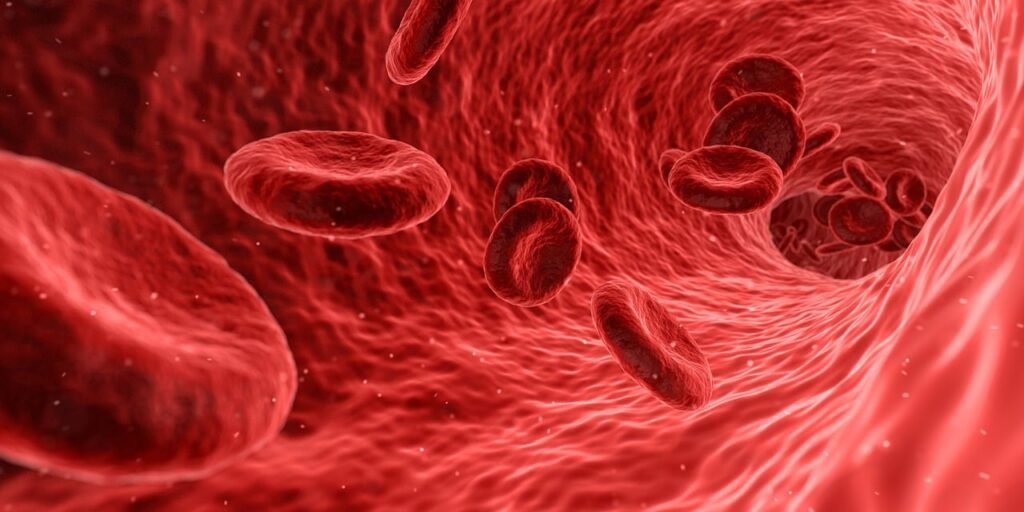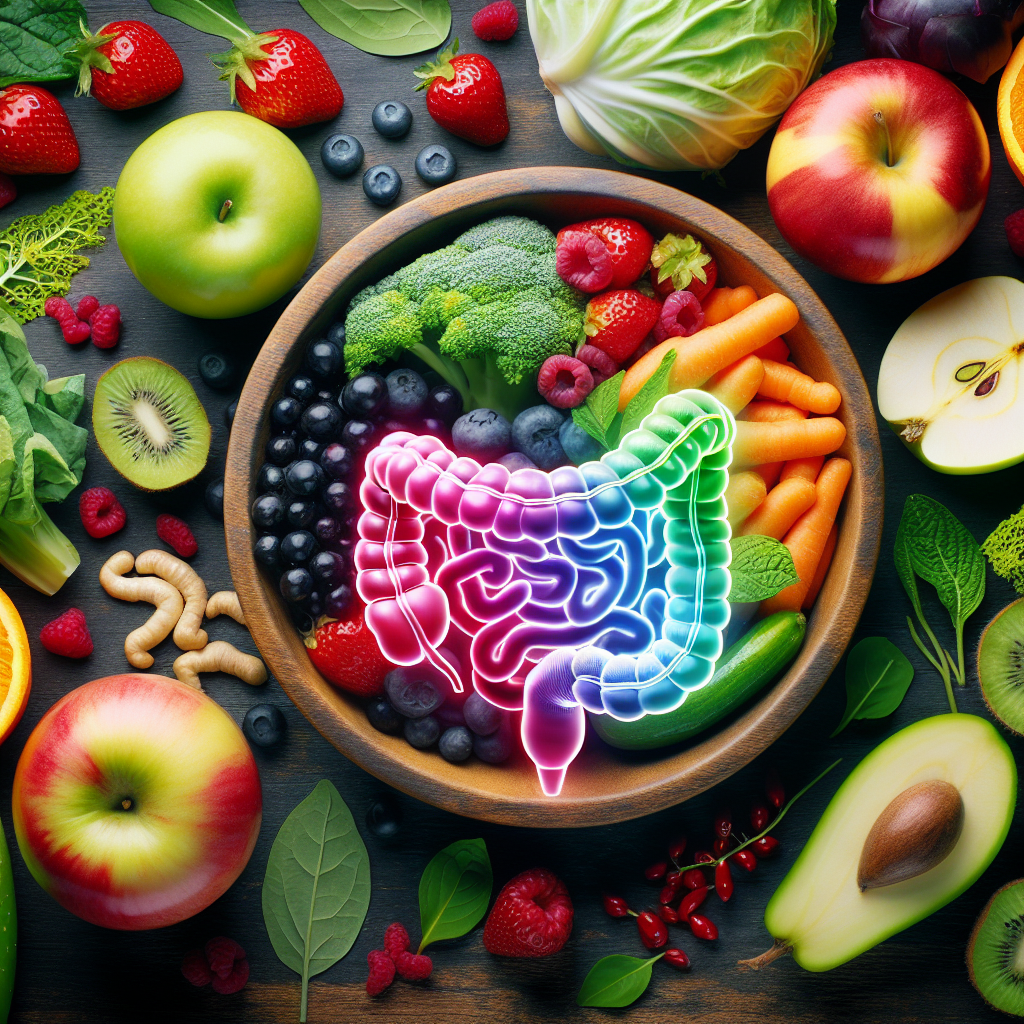Are you looking to improve your digestive health? Look no further! In this article, we will explore the incredible impact that fruits and vegetables can have on your digestive system. From increasing fiber intake to promoting good gut bacteria, these natural wonders are packed with essential nutrients that can keep your digestion running smoothly. So, if you’re ready to embrace a healthier lifestyle and enjoy a happier tummy, let’s dive into the wonderful world of fruits and vegetables and discover the positive impact they can have on your digestive health.
Impact of Fruits and Vegetables on Digestive Health
Digestive health plays a crucial role in maintaining overall well-being. The food we consume has a significant impact on our digestive system, and incorporating a variety of fruits and vegetables into our diet can greatly promote digestive health. These natural wonders are packed with essential nutrients, fiber, and water, and are rich in prebiotics, probiotics, and digestive enzymes. Let’s delve deeper into the numerous ways in which fruits and vegetables positively impact our digestive system.

1. Promoting Digestive Health
Including fruits and vegetables in your daily diet is a surefire way to promote digestive health. These fiber-rich foods aid in maintaining regular bowel movements, preventing constipation, and ensuring a healthy digestive system. The high water content in fruits and vegetables also helps to soften stools, facilitating efficient digestion and preventing digestive discomfort. A diet abundant in these colorful and nutrient-dense foods can significantly improve your digestive well-being.
2. High Fiber Content
Fruits and vegetables are renowned for their high fiber content. Fiber is a type of carbohydrate that cannot be digested by the human body. However, it plays a crucial role in maintaining digestive health. Fiber adds bulk to stool, aiding in its easy passage through the intestines. This helps prevent constipation and promotes regular bowel movements. Additionally, fiber acts as a prebiotic, providing nourishment to the beneficial bacteria in the gut and enhancing gut health.
3. Essential Nutrients
Fruits and vegetables are packed with essential nutrients that are vital for optimal digestive health. They are rich in vitamins, minerals, and antioxidants that support the proper functioning of the digestive system. For example, fruits like oranges and strawberries are excellent sources of vitamin C, which aids in the absorption of iron and supports the production of collagen. Leafy greens such as spinach and kale are loaded with vitamin K, which is necessary for blood clotting and maintaining a healthy gut lining.
4. Water Content
Staying hydrated is essential for a healthy digestive system, and fruits and vegetables can help you do just that. Many fruits and vegetables, such as watermelon, cucumber, and celery, have high water content. Consuming these hydrating foods can aid in preventing dehydration, as well as soften stools and promote smooth digestion. Including water-rich fruits and vegetables in your diet is an easy and delicious way to keep your digestive system functioning optimally.

5. Prebiotics and Probiotics
Fruits and vegetables are not only rich in fiber but also contain prebiotics and probiotics, which are beneficial for gut health. Prebiotics are a type of fiber that cannot be digested by our bodies but serve as nourishment for the good bacteria in our gut. On the other hand, probiotics are live bacteria that provide various health benefits when consumed. They can be found in certain fruits and vegetables, such as bananas, onions, garlic, and sauerkraut. Incorporating these foods into your diet can help maintain a healthy balance of gut bacteria and support overall digestive wellness.
6. Digestive Enzymes
Fruits and vegetables are also a wonderful source of digestive enzymes, which are responsible for breaking down the food we eat into smaller, easily digestible components. For example, pineapple contains bromelain, an enzyme that aids in protein digestion, while papaya contains papain, which helps break down proteins and supports healthy digestion. Incorporating these enzyme-rich fruits into your diet can contribute to better digestion and nutrient absorption.

7. Digestive Disorders Prevention
By including a wide variety of fruits and vegetables in your diet, you can help prevent various digestive disorders. The high fiber content helps prevent conditions such as constipation, diverticulosis, and hemorrhoids. The antioxidants and anti-inflammatory properties found in fruits and vegetables also contribute to a reduced risk of gastrointestinal diseases, such as gastritis and inflammatory bowel disease. Adding these wholesome foods to your meals can be a proactive step towards maintaining a healthy digestive system.
8. Improved Gut Microbiota
The health of our gut microbiota, the trillions of bacteria that reside in our digestive system, is crucial for overall well-being. Fruits and vegetables, particularly those high in fiber, nourish the beneficial bacteria in our gut. These bacteria play a vital role in breaking down certain foods, producing essential vitamins, and supporting our immune system. A diet abundant in fruits and vegetables helps promote a diverse and flourishing gut microbiota, which can have far-reaching positive effects on our digestive health.

9. Weight Management
Maintaining a healthy weight is important for overall well-being, and fruits and vegetables can aid in weight management. These foods are low in calories and high in fiber, allowing you to feel fuller for longer and preventing overeating. Additionally, the water content in fruits and vegetables adds bulk to your meals, promoting a sense of satiety. By incorporating a rainbow of fruits and vegetables into your diet, you can support weight management and improve your digestive health simultaneously.
10. Reduced Risk of Colorectal Cancer
A diet rich in fruits and vegetables has been associated with a reduced risk of colorectal cancer. The high fiber content helps maintain regular bowel movements and prevents the buildup of toxins in the colon. Furthermore, the antioxidants and phytochemicals present in these foods exert protective effects against cancer cells. By regularly consuming a variety of fruits and vegetables, you can take a proactive step towards reducing the risk of colorectal cancer and safeguarding your digestive health.
In conclusion, the impact of fruits and vegetables on digestive health cannot be overstated. From promoting regular bowel movements and preventing digestive disorders to supporting a healthy gut microbiota and reducing the risk of colorectal cancer, the benefits of incorporating these wholesome foods into your diet are plentiful. So, stock up on vibrant fruits and vegetables, and let them work their magic on your digestive system. Your gut will thank you for it!


